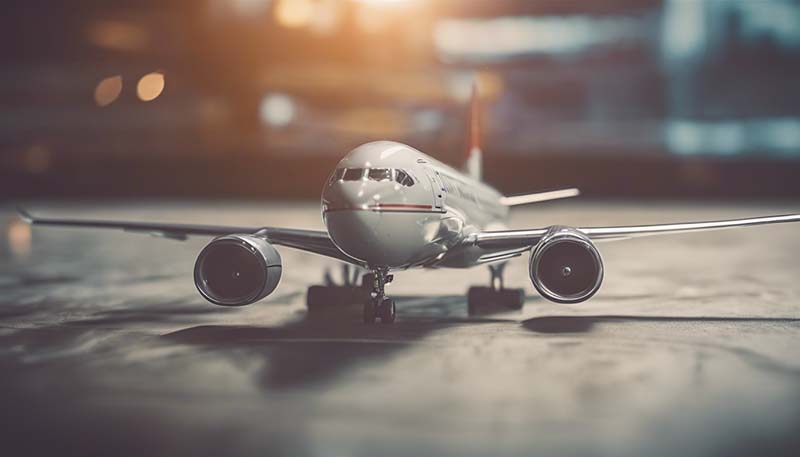Introduction
Airline loyalty programs have become an essential part of the aviation industry in recent years. These programs aim to reward frequent flyers by offering various incentives, such as free flights, upgrades, and other perks, in exchange for their continued patronage. This article will explore the role of airline loyalty programs in retaining customers and driving revenue, as well as the benefits and challenges associated with these programs.
History of Airline Loyalty Programs
The concept of airline loyalty programs can be traced back to the early 1980s when Texas International Airlines introduced the first such program. The idea quickly gained popularity, and other airlines soon followed suit. Today, almost all major airlines have their own loyalty programs, and these programs have become an integral part of the overall customer experience.
Benefits of Airline Loyalty Programs for Customers
Airline loyalty programs offer numerous benefits to customers, which can be broadly categorized into the following areas:
Advertisement
-
Rewards and Incentives
The primary benefit of loyalty programs is the rewards and incentives offered to customers. These can include free flights, upgrades, priority boarding, and access to airport lounges, among other perks. These rewards can significantly enhance the overall travel experience for frequent flyers.
-
Personalized Services
Another advantage of loyalty programs is the personalized services they offer. Airlines often provide tailored offers and promotions based on a customer's travel history and preferences. This level of personalization can make customers feel valued and appreciated, which can lead to increased loyalty and repeat business.
-
Exclusive Offers
Loyalty program members often receive exclusive offers and discounts on flights, hotels, car rentals, and other travel-related services. These offers can provide significant savings for frequent travelers, making their loyalty to a particular airline even more valuable.
Benefits of Airline Loyalty Programs for Airlines
Airline loyalty programs also offer numerous benefits to airlines, which can be summarized as follows:
-
Customer Retention
The primary goal of any loyalty program is to retain customers. By offering rewards and incentives, airlines can encourage repeat business and foster long-term relationships with their customers. This can lead to a more stable and predictable revenue stream.
-
Increased Revenue
Loyal customers are more likely to choose a particular airline for their travel needs, which can lead to increased revenue for the airline. Additionally, the sale of miles or points to partner companies can also generate significant revenue for airlines.
-
Market Research and Data Analytics
Airline loyalty programs provide valuable data on customer preferences and travel habits. This information can be used to improve services, develop targeted marketing campaigns, and identify new revenue opportunities.
Challenges of Airline Loyalty Programs
Despite their numerous benefits, airline loyalty programs also face several challenges, such as:

-
High Competition
The increasing number of airline loyalty programs has led to intense competition among airlines. This can make it difficult for airlines to differentiate their programs and attract new customers.
-
Cost of Rewards
The cost of offering rewards and incentives can be significant for airlines. This can put pressure on airlines to find ways to reduce costs while still providing valuable rewards to their customers.
-
Complexity and Accessibility
Some loyalty programs can be complex and difficult to navigate, which can lead to customer frustration. Airlines need to ensure that their programs are user-friendly and accessible to a wide range of customers.
Future of Airline Loyalty Programs
As the aviation industry continues to evolve, so too will airline loyalty programs. Some potential developments in the future may include:
-
Greater Integration with Technology
Airlines may increasingly leverage technology to improve the customer experience and streamline the process of earning and redeeming rewards. This could include the use of mobile apps, artificial intelligence, and blockchain technology.
-
Expanded Partnerships
Airline loyalty programs may continue to expand their partnerships with other industries, such as hotels, car rental companies, and credit card providers. This can provide customers with even more opportunities to earn and redeem rewards.
-
Sustainability and Environmental Initiatives
As the aviation industry becomes more focused on sustainability and environmental responsibility, loyalty programs may incorporate eco-friendly initiatives, such as carbon offsetting or rewards for choosing more sustainable travel options.
Conclusion
Airline loyalty programs play a crucial role in retaining customers and driving revenue for airlines. By offering valuable rewards and personalized services, these programs can foster long-term relationships with customers and encourage repeat business. Despite the challenges faced by these programs, their continued evolution and adaptation to changing market conditions will ensure their ongoing success in the years to come.